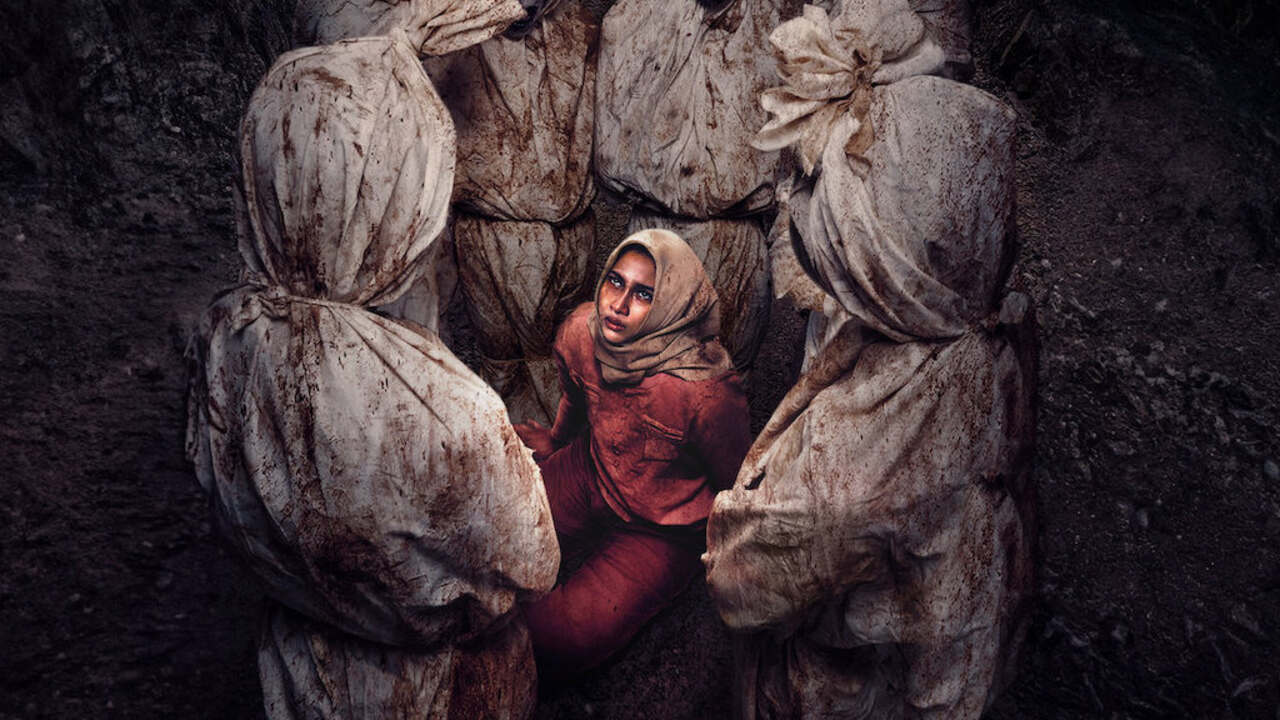
Hadrah Daeng Ratu’s "The Corpse Washer" (2024) is a cinematic venture that dives into the rarely depicted profession of corpse washing, weaving it with elements of horror and mysticism. This Indonesian film, featuring Aghniny Haque as Lela and Djenar Maesa Ayu as her mother, Bu Siti, offers a refreshing take on horror, embracing cultural nuances and supernatural folklore.
Lela is reluctantly drawn into the family profession of corpse washing, feeling trapped by her heritage. Her mother, Bu Siti, holds the belief that their work is a sacred duty. This belief is put to the test when Bu Siti dies under mysterious circumstances, setting off a series of chilling events for Lela. The story begins with Lela discovering unsettling oddities in her mother’s corpse, an ominous prelude to the supernatural occurrences that follow.
The narrative escalates as Lela's small village becomes engulfed in rumors of witchcraft, linking Bu Siti’s death to other unexplained fatalities in the community. As Lela grapples with these strange events, she is supported by her brother Arif, played by Ibrahim Risyad. Together, they strive to uncover the truth behind their mother’s death while confronting the malevolent forces that seem determined to keep secrets buried.
The strength of "The Corpse Washer" lies in its atmospheric storytelling. Ratu skillfully captures the macabre beauty of the corpse-washing process, portraying it with a mix of reverence and horror. The film's visual style is striking, employing a muted color palette that enhances the somber and eerie mood. The use of close-ups and lingering shots creates a sense of intimacy and unease, drawing viewers into the protagonist's world of ritual and dread.
Lela’s journey is fraught with suspense, punctuated by well-timed jump scares and a pervasive sense of dread. The supernatural elements are seamlessly integrated into the plot, with spirits and sinister omens becoming a natural extension of Lela’s reality. The depiction of witchcraft and village superstitions adds depth to the narrative, grounding the horror in a cultural context.
However, the film is not without its flaws. At times, the pacing feels uneven, with certain scenes dragging on longer than necessary. While the build-up of tension is generally effective, there are moments where the story’s momentum stalls, leaving viewers yearning for a quicker resolution. Additionally, some of the secondary characters lack development, their motivations and backstories remaining somewhat obscure.
The performances, particularly by Aghniny Haque and Djenar Maesa Ayu, are commendable. Haque's portrayal of Lela is compelling, capturing the character's internal struggle and resilience. Ayu’s brief but impactful presence as Bu Siti leaves a lasting impression, her character’s enigmatic nature adding to the film’s mystique. The supporting cast, including Ibrahim Risyad and Ruth Marini, deliver solid performances, though their characters could have benefited from more nuanced writing.
The thematic exploration of death, duty, and the supernatural in "The Corpse Washer" is both poignant and unsettling. The film delves into the emotional toll of Lela’s work, highlighting the intersection of personal loss and professional obligation. It also addresses the stigma and fear associated with death, presenting corpse washing as a practice shrouded in both respect and terror.
In conclusion, "The Corpse Washer" is a standout in the horror genre, offering a unique perspective on a culturally significant profession. Despite its minor shortcomings, the film’s atmospheric direction, strong performances, and intriguing plot make it a compelling watch. Hadrah Daeng Ratu succeeds in crafting a horror story that is both deeply rooted in tradition and universally relatable, proving that true terror often lies in the familiar and the forgotten.
For those seeking a horror film that transcends typical genre conventions and delves into the mystical aspects of human experience, "The Corpse Washer" is a must-see. It is a haunting reminder that the past is never truly dead, and the spirits of our ancestors may still have stories to tell.
Final Score- [8/10]
Reviewed by - Anjali Sharma
Follow @AnjaliS54769166 on Twitter
Publisher at Midgard Times
Hi Everyone, after a due consideration, we have decided that we will be open for donations to help us in managing our website. We will be greatful for any kind of amount we receive. Thanks!
— Midgard Times 🎬 (@Moviesr_net) January 4, 2026
PayPal- [email protected] pic.twitter.com/DlNNz5Npm5
Get all latest content delivered to your email a few times a month.
Bringing Pop Culture News from Every Realm, Get All the Latest Movie, TV News, Reviews & Trailers
Got Any questions? Drop an email to [email protected]